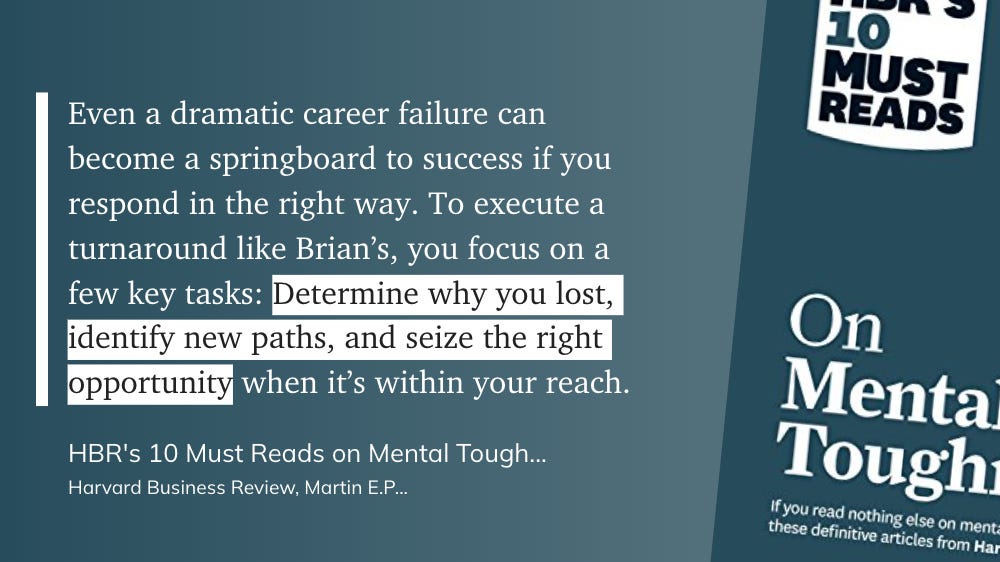"Even a dramatic career failure can become a springboard to success if you respond in the right way. To execute a turnaround like Brian’s, you focus on a few key tasks: Determine why you lost, identify new paths, and seize the right opportunity when it’s within your reach."
(Harvard Business Review, Martin E.P. Seligman, Tony Schwartz, Warren G. Bennis, Robert J. Thomas, HBR's 10 Must Reads on Mental Toughness)
Introduction
From the moment we are born, we begin to learn and acquire knowledge from our surroundings, experiences, and interactions with others.
However, not all learning experiences are created equal. Some lessons can be easy and enjoyable, while others can be tough and painful.
What Are Tough Learnings?
Tough learnings are those experiences that are challenging, uncomfortable, and often painful. They can come in many forms, such as failures, rejections, criticisms, or conflicts.
Tough learnings are different from easy learnings, which are those experiences that are simple, effortless, and enjoyable.
While easy learnings can be beneficial, tough learnings are often more valuable because they push us out of our comfort zones and force us to confront our weaknesses, biases, and limitations.
Why Are Tough Learnings Important?
Firstly, they help us to grow and develop as individuals. When we confront our weaknesses and failures, we can learn from them and improve ourselves.
Secondly, tough learnings can help us to build resilience and mental toughness. We become more resilient and better equipped to handle future difficulties when we face and overcome challenges.
Finally, tough learnings can also help us to develop empathy and understanding toward others. When we experience pain and suffering, we become more compassionate and empathetic toward others who are going through similar struggles.
How to Embrace Tough Learnings
While tough learnings can be difficult to endure, there are ways to embrace them and turn them into positive experiences.
Adopting a growth mindset and viewing challenges as opportunities for growth and learning is important. Instead of seeing failures and rejections as personal attacks, we can see them as opportunities to learn from our mistakes and improve ourselves.
Seek feedback and advice from others. By opening ourselves up to constructive criticism, we can gain valuable insights into our strengths and weaknesses and learn how to improve.
Take care of yourself and practice self-compassion. When you experience pain and suffering, it's important to be kind and gentle with yourself and seek support from others.
Conclusion
Tough learnings are an inevitable part of life, but they don't have to be negative experiences. By embracing tough learnings and viewing them as opportunities for growth and learning, we can become better learners and individuals.
So the next time you face a tough learning experience, embrace it with an open mind and a growth mindset, seek feedback and support from others, and practice self-compassion.
Remember, tough learnings may be painful but are valuable for personal growth and development.


